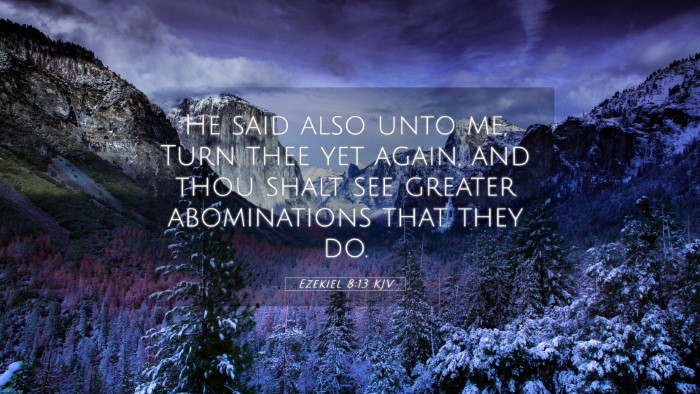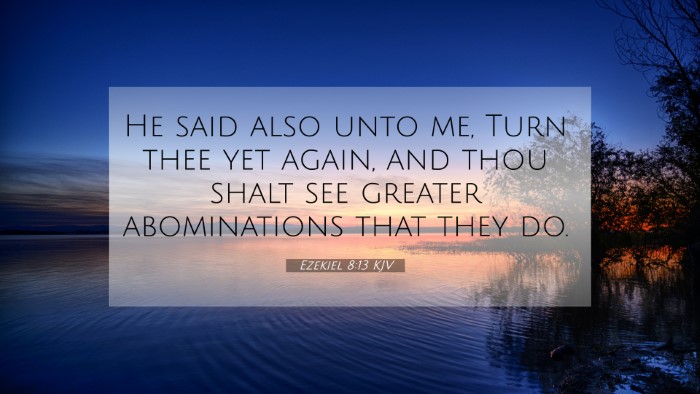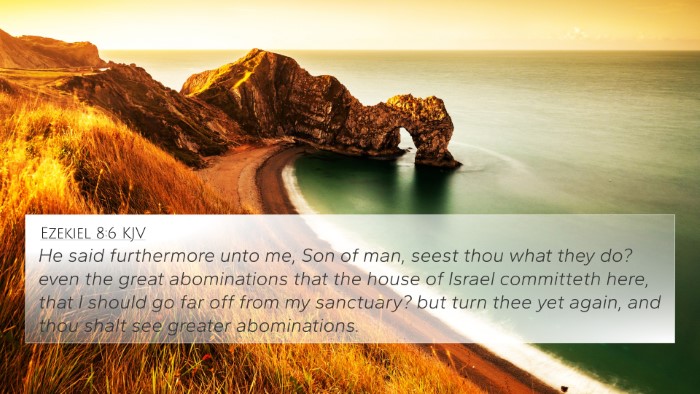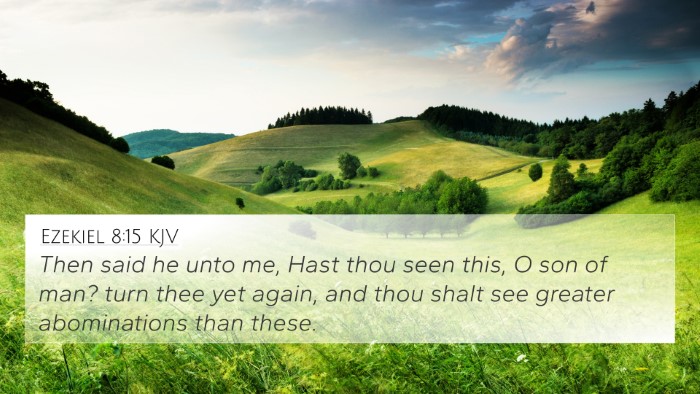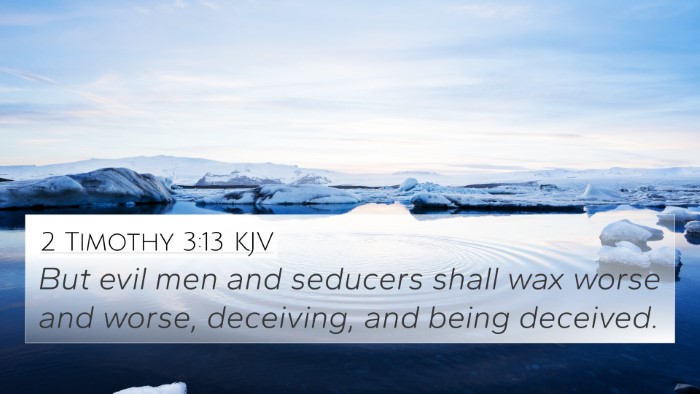Understanding Ezekiel 8:13
Ezekiel 8:13 states: "He said also unto me, Turn thee yet again, and thou shalt see greater abominations that they do." This verse is part of a vision where the prophet Ezekiel is shown the sins and idolatries taking place among God's people, particularly in Jerusalem. The deeper message here highlights a divine revelation that shows the seriousness of the abominable practices that were prevalent. Through this scripture, we can extract significant insights regarding the theme of idolatry, spiritual blindness, and God’s call for repentance.
Commentary Insights
-
Matthew Henry's Commentary:
Matthew Henry points out that this phrase is a transition to reveal further depths of apostasy among the Israelites. He emphasizes that God is not only aware of their actions but desires Ezekiel to perceive the full extent of their moral decline. The Hebrew term for abomination signifies practices detestable to God, demonstrating the severity of their sin.
-
Albert Barnes' Notes:
Barnes elaborates on the importance of understanding what constitutes an “abomination” in the eyes of God. He explains that these acts are not only wrong but also lead to spiritual destruction. The command to "turn again" implies that there are layers to the sinful nature of humanity; hence, one must remain vigilant against it.
-
Adam Clarke's Commentary:
Clarke interprets this verse as an indication of God’s patience and His desire to warn His people before executing judgment. The repetition of the phrase showcases that human depravity can escalate, and prophetic warnings are essential for understanding divine displeasure. Clarke stresses the point that God guides His prophets to reveal the truth that leads to repentance.
Bible Verse Cross-References
Ezekiel 8:13 relates to several other Bible verses that reinforce its themes and messages. Below are key cross-references that provide additional context:
- Jeremiah 7:30-31: Highlights the abominable practices of the people and God’s anger.
- Isaiah 1:4-6: Calls out Israel for their transgressions and how their sacrifices have become meaningless.
- Revelation 2:20: Addresses the church of Thyatira’s tolerance of false teachings, mirroring similar themes of idolatry.
- Romans 1:24-25: Discusses the consequences of idolatry and abandoning God's truth.
- 2 Chronicles 28:1-3: A narrative of wickedness and idol worship during King Ahaz's reign that caused calamity.
- Matthew 23:37: Jesus laments over Jerusalem for their stubbornness against prophetic warnings.
- John 12:40: Illustrates spiritual blindness which reflects the condition of the people Ezekiel addresses.
Thematic Bible Verse Connections
This verse serves as a crucial pivot in the understanding of Israel’s idolatrous practices. By cross-referencing with other scriptures, we can discern a pattern of God’s persistent warnings against sin, the dire consequences of turning from Him, and the overarching theme of seeking repentance.
Cross-Referencing Biblical Texts
Using tools for Bible cross-referencing is essential for deeper understanding. This can be achieved through careful study using a Bible concordance or a Bible cross-reference guide. Such resources help uncover connections between Bible verses that may not be immediately apparent, illuminating complex theological themes.
Conclusion: The Call for Repentance
In summary, Ezekiel 8:13 functions as both a dire warning and a prophetic insight into the human condition regarding sin and idolatry. The layers of meaning found within this text, combined with its inter-Biblical dialogue with related verses, affirm the necessity for constant vigilance in the pursuit of holiness and truth.

